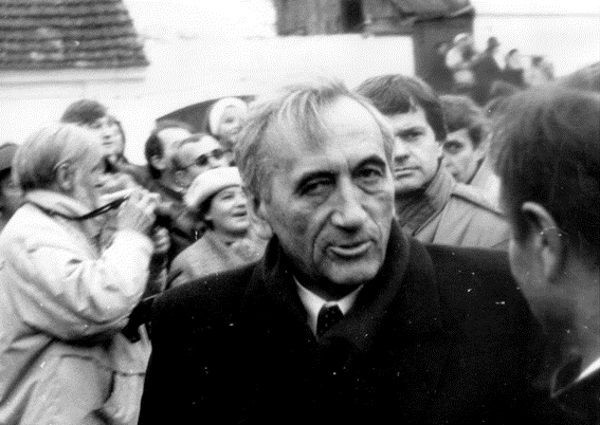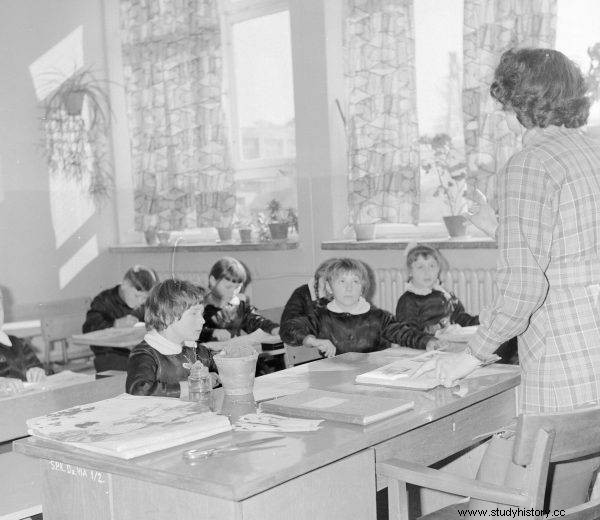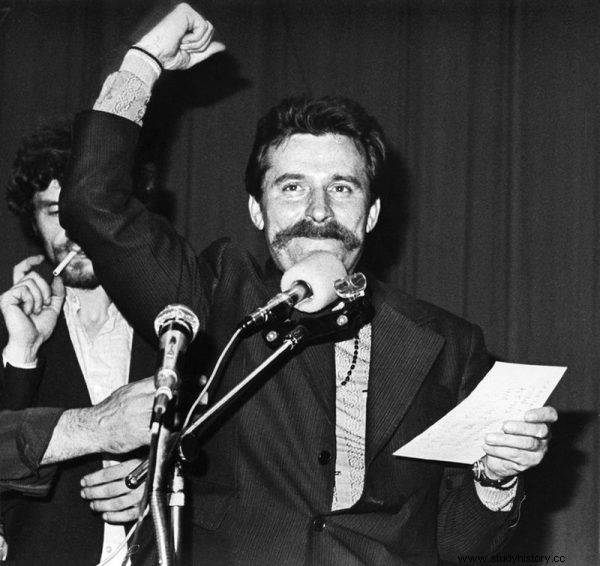On August 3, 1990, religion returned to school. She was led in hastily through the back door. The way it was done caused even more consternation than the mere fact of returning catechesis to secular, public schools.
After the Round Table talks, it became clear that religion would return to schools (just like before or immediately after the war). The pressure from the Catholic Church was enormous and its influence grew day by day.
The introduction of religion into schools - along with the prohibition of abortion and material matters - was a key element of the Episcopate's strategy to increase the Church's influence over the state and citizens. On the other hand, there was a noticeable resistance on the part of the rulers themselves, as they did not want to fund themselves a religious war during the reforms.
"Authenticity in going to religion"
The Church operated by pressure and accomplished facts. Publicly, without consulting the government, he demanded that religion be introduced into schools. As Prime Minister Tadeusz Mazowiecki recalled years later, he received a lot of phone calls from bishops and the primate himself with pressure to make it before the beginning of the school year.
Mazowiecki was skeptical, he believed that religion at school would hurt ... the Church. "The authenticity of going to religion" will be lost.
However, the position of the Mazowiecki government, which was attacked from various sides, including by Lech Wałęsa, was weakening. Mazowiecki counted on the support of the Church for the government, as well as for its candidacy in the upcoming presidential election . Therefore, the prime minister was also in a hurry.

Mazowiecki counted on the Church's support for the government, as well as for its candidacy in the upcoming presidential elections.
In July, a joint subcommittee of the government and the Polish Bishops' Conference established that religion returned to schools as a non-compulsory subject and taught by priests free of charge. Soon after, on August 30, the then minister of education, prof. Henryk Samsonowicz, in consultation with Prime Minister Tadeusz Mazowiecki, issued an instruction on the return of religion to school walls. It assumed that catechists would collect salaries from the state.
There were no public consultations and the entire process was bypassed by parliament. According to prof. Ewa Łętowska, the then Ombudsman, the government broke the Constitution, as well as the Teacher's Charter. Łętowska filed a complaint with the Constitutional Tribunal.
Concerns about the secular nature of the state
The decision of the Mazowiecki government divided the public opinion. Part of the society received it positively or indifferently, there were also numerous voices criticizing the mode of introducing religion into schools, expressing concerns about the secular nature of the state and the replacement of one leading power of the nation with another.
Piotr Pacewicz's comment in "Gazeta Wyborcza" reflects the mood of the time well:
Prime Minister Mazowiecki put his supporters in a difficult situation. The issue of (teaching religion in schools) did not come up in parliament or in government deliberations, let alone a national referendum. The decision was made semi-openly (the composition of the subcommittee and the mode of its work were not given), without presenting the arguments publicly without reference to the discussion in the media, including Catholic ones. Also against the act on the relationship between the state and the Church of May 1989 and against the Constitution that was in force so far.

The judges decided that the separation of church and state had not been violated, as the Ministry of National Education only provided the premises of schools for religious education.
Similar arguments were used by professors of universities and of the Polish Academy of Sciences in their position regarding the teaching of religion at school. The demand for a referendum on this matter was rejected by Anna Radziwiłł, deputy minister of education, in a rather bizarre statement:"(...) regardless of the result (referendum - author's note) it would hurt the minority and impose the will of the majority on it, and it was not - as it is now - free choice of parents and children ”.
The Constitutional Tribunal ruled that the instructions of the Minister of National Education introducing the teaching of religion to schools were consistent with the Constitution. The judges decided that the separation of church and state had not been violated, because the Ministry of National Education only provided school rooms for religious education. On the other hand, paying salaries to catechists is not the same as subsidizing churches. It is not known how each of the 12 judges of the Tribunal voted, while three dissenting, claiming that only the parliament could take such a decision.
The Constitutional Court dismissed the complaints
In 1992, another minister of education, Andrzej Stelmachowski, issued an ordinance on the conditions and manner of organizing religious education in schools. In the opinion of the Ombudsman, the regulation broke the rule of a secular state. The Court, however, dismissed the application in its entirety.
Controversies related to religion at school also concerned the organization of catechesis. Although it takes place in public schools and catechists are paid from public money, the state has no influence on the content of the teaching , and catechists are not subordinated to pedagogical councils and school principals, but to parish priests.

The bishops did not support Tadeusz Mazowiecki in the presidential election, Lech Wałęsa was closer to them.
Eventually, religion in schools was allowed in the 1997 Constitution, though with the proviso that it may not infringe upon the freedom of conscience and religion of others.
The bishops did not support Tadeusz Mazowiecki in the presidential election, Lech Wałęsa was closer to them. After the presidential election, the Mazowiecki government resigned. The introduction of religion to schools in addition to such bizarre conditions was an important stage for the Catholic Church in subjugating social life to itself and one of the many acts of capitulation of the secular state. Currently, the postulates to take religion out of school and stop financing it convince more and more Poles.
